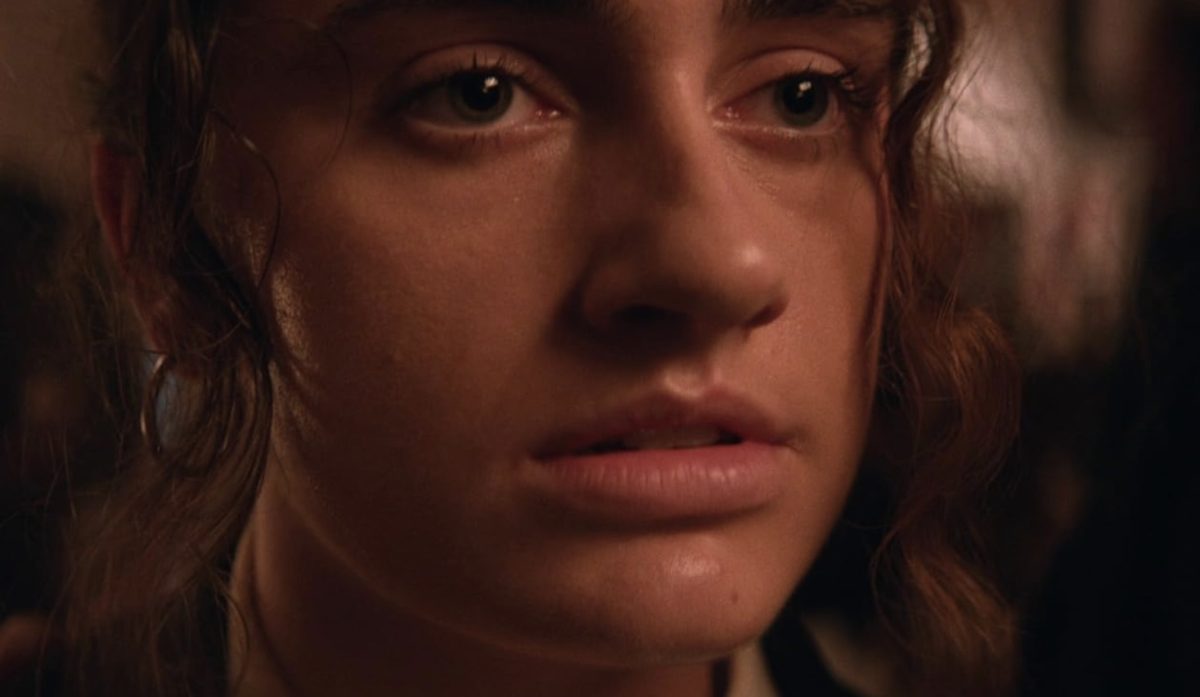If you’re like me and your movie diet largely consists of bisexual women or Rachel Sennott — a straight woman playing a bisexual in what feels like every role — you may also be incessantly frustrated by the abundance of cliche coming-out stories in LGBTQ+ media.
The most pertinent issue here is accuracy. LGBTQ+ people’s stories don’t begin once they either painfully or seamlessly — or somewhere in between — come out to their conservative family members, and they certainly don’t end immediately afterwards. Instead, there’s actually a whole life of committing crime, playing sports and kissing your toxic ex lying ahead. Here are five films that give you the best of it.
“Bottoms”
“Bottoms” proves why starting a fight club is the best way to get a girlfriend.
“Bottoms” spotlights the “gay, ugly and untalented” within each of us. More specifically, within PJ (Rachel Sennott) and Josie (Ayo Edebiri), who start an afterschool self-defense club under the guise of empowering their female peers — in reality, they want to gain the attention of the out-of-their-league cheerleaders Brittany (Kaia Gerber) and Isabel (Havana Rose Liu). PJ and Josie manage to assemble a fighting insurgency guided by the wisdom of Mr. G (Marshawn Lynch), killing members of the high school’s rival football team while still getting to kiss the girls of their dreams.
Unlike other queer films, “Bottoms’” power lies in the notion that queer relationships can exist without the context of a trauma plot. The dominant point of the movie is that LGBTQ+ film can be apolitical — except for the one notable Black Republican — indifferent and so intellectually underwhelming that it’s freeing, rather than philosophically momentous or representative of the collective queer struggle.
“Shiva Baby”
If there’s anything to thank the Tisch School of the Arts for, it’s for this senior-year short-film-thesis-turned-full-length-feature by, of course, Violets legends Sennott and Emma Seligman.
The near entirety of “Shiva Baby” takes place in one room, and the claustrophobia is visceral. Tensions and laughs explode amidst the shiva of a close family friend, where Danielle (Sennott), a bisexual, young Jewish woman, interacts with all her irritants and soft spots in what feels like the bounds of just 200 square feet.
Danielle is graduating with a major described as “the business of gender,” which viewers can assume is almost certainly a Gallatin degree, due to Seligman’s alma mater. She is financially reliant on her parents, but makes some side cash from what she tells her family is babysitting. In reality, she’s being paid to have sex with older men.
Not long into the hour-and-17-minute film, one of the older men in question, who is paying Danielle for sexual favors, appears at the shiva along with his wife and child, as does Danielle’s most recent ex-girlfriend, Maya (Molly Gordon). Danielle and Maya find reprieve from the chaos while begrudgingly leaning against the blue wood of the suburban house, rediscovering their spark.
“LFG”
Women’s soccer has always been gay.
Now, you might be thinking, this isn’t exactly queer cinema — it’s a documentary about the U.S. Women’s National Soccer Team going to court in 2019 to achieve equal pay. Well, let me stop you right there. Anything and everything having to do with the USWNT is inherently gay, and needless to say, doesn’t require a coming-out moment. The documentary’s title, “LFG,” is the USWNT’s motto coined during this fight for equal pay, which occurred the same year as their Women’s World Cup win, where the entire crowd at the semi-final game was chanting “equal pay!” in a harmonious union bound to bring you to tears. Watch for gay people, watch for gay people playing soccer and watch for gay people sticking it to the machine.
“D.E.B.S.”
Not only is it camp, but it’s also mind-numbing.
Gay people are rarely gifted the treasure of an incredibly mindless movie that isn’t a Netflix Original. “D.E.B.S.,” however, somehow pulls it off, without viewers having to recoil multiple times from various cases of second-hand embarrassment.
In “D.E.B.S.,” a group of four teenagers talented at lying, stealing and killing work for a secret spy agency. One of the brightest and best among them, Amy (Sara Foster), happens to become attracted to the agency’s biggest security threat. From then on, a forbidden love story of plaid skirts, plastic guns and “Charlie’s Angels” references commences.
The script is terrible, the acting clumsy and, when put together in excess, the spy genre becomes unintentionally satirized — and all of this transpires in front of a noticeably faulty green screen bleeding through the cast’s Y2K outfits. All that notwithstanding, the film is an undoubtedly wonderful time.
“Love Lies Bleeding”
Neo-noir, but make it gay.
Kristen Stewart, Katy O’Brian, gore and guns. The latter two typically don’t dominate the sphere of LGBTQ+ cinema, but in director and co-writer Rose Glass’ romantic thriller about two lesbian lovers, who meet in a bodybuilding gym, love quite literally lies bleeding.
Set in the style of the ’80s with mullets, short-shorts and muscle tees, Lou (Stewart) is stuck in a corrupt small town in New Mexico looking for a fresh start in her life. When Jackie (O’Brian), a somewhat mysterious bodybuilder, walks into Lou’s family gym, the two quickly fall into bed together, and not soon after, start killing together. Glass takes the classic noir and caper style and unhinges their bolts, transcending subtleties and eye-rolling heteronormativity.
Contact Levi Langley at [email protected]


























































































































































